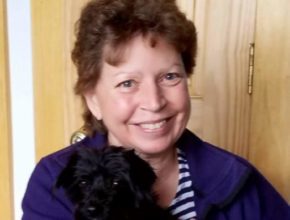When my son died suddenly, many years ago now, I was able to sleep. Sleeping became a significant part of my grieving process. I can’t believe that I was able to do so much sleeping, but I am glad that I could. It was an amazing gift, because it was respite from the many emotions that were coursing through my mind and my body.
It was an escape and a chance for my body to rest in between all the deep feelings of loss and all of the physical reactions that would sneak into my every waking moment. Without any fanfare, they would overtake my body, heart and mind.
I found it hard to believe the fact that within me I had this escape from it all. It made me so grateful to experience this in the midst of all my sadness. In the past, I had always dreamt when I slept. But now, I was being transported into a state of “nothingness,” and the dreams were gone. I could have had nightmares, had this not been true. It was a tremendous relief from the heartbreak, the crying, the very depth of my bereavement.
God blessed me in this way and I didn’t know why I was being given this grace, when I knew that so many of my grieving friends were not being gifted in this way. I was embarrassed by this and never shared this with the grief groups I attended. And so, I said prayers of thanksgiving and prayers for my friends. Prayer and gratitude saved me from the depths of despair.
I had made a new friend, just months before my son’s death. When she found out what had happened, she was worried that I might not be able to sleep. And so she stayed up all night praying that I would sleep through the night. And I did, not only that first night, but every night. I called her my sleep angel. She moved away and we lost touch, but I will always remember her. She too was a gift from God that helped me through that very first night. And she is still in my prayers every night before I go to bed.
